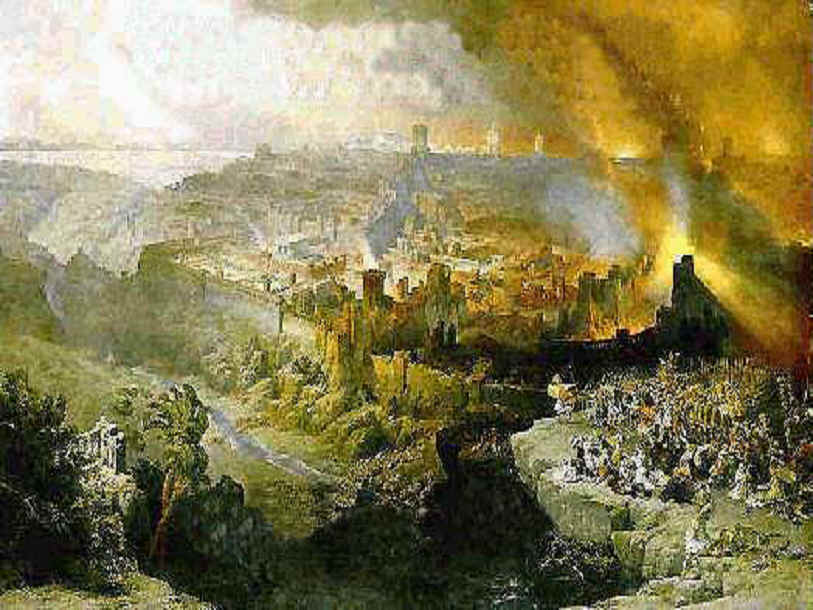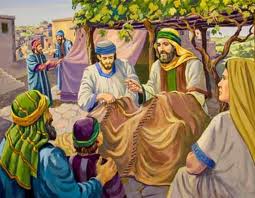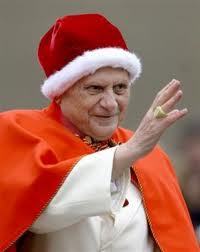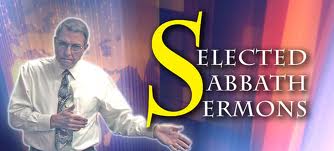| When Jesus in the gospels is
appearing to us to be using terms that imply his being "God"
he was only doing what the Annas priests were already doing in the
Qumran area. When Caiaphas in Jesus' trial is supposedly
trying Jesus for "blasphemy" he is only upset that Jesus is
using terms that Annas and Caiaphas have reserved for their own use! |
Peter's
Joke about Jonathan's
"God"
Trick
Dr. Barbara
Thiering PhD also writes in her book that it is Simon Peter who is
responsible for what we are reading in the Gospel of Mark. Why we are
reading about the "paralytic" being let down through the
roof in Peter's book, the gospel of Mark, not in Matthew Annas' book,
the Gospel of Matthew, is that there is a limit on how much
"fun" Matthew is willing to make about what his own family
(his brother Jonathan) is doing!
And if what
I'm about to propose is correct, Matthew did later!
Mark 2:1 "And again he entered into Capernaum, after some
days; and it was noised that he was in the house. 2 And
straightway many were gathered together, insomuch that there was
no room to receive them, no, not so much as about the door: and he
preached the word
unto them."
"CAPERNAUM' is here Kherbit Mazin [which I have visited], 6 Km
south of Qumran on the Dead Sea Shore, where there is the ruins of an
Essene synagogue, and the ruins of some 'village' huts beside the
synagogue.
"No room to receive them, (even) beside the door" is proper
editing to make it a necessity to make a hole in the roof -- the punch
line of the "joke"--
"The word' is here 'the WORD" of John 1:1-3, a code name for
Jesus and his 'new gospel' -- that he, Jesus, is the Way, the Truth,
and the Life---
3 "And they come
unto him bringing one sick of the palsy, which was born of four."
This is Jonathan Annas, playing 'God'. God is not
really a paralytic, someone with the 'palsy', but He doesn't need to
walk because He is "God". It's demeaning for God to have to
walk, like a man. God has a divine throne-chariot
described in Ezekiel chapter 1, carried or propelled by "four
living creatures with the likeness of a man (verse 5).
4 "And when they could not come nigh unto him for the press,
they uncovered the roof where he was: and when they had broken
it up, they let down the bed wherein the sick of the palsy lay."
Peter, in Mark, is telling this story for two audiences (three,
actually, because I am reading it, too). To the first
audience, the Essenes of his own time, it is a joke. The
Essenes of the Qumran area all know who this guy is who gets up on a
roof in the Kherbit Mazin village and prays for three hours, then
comes down through the roof (as Santa Claus and any God should do) and
receives requests for gifts of grace and forgiveness of
sins. It's that Annas guy from the Jerusalem temple,
making has rounds as God. So prayer time has ended, and here he comes,
down through the roof. "My, what a nice crowd
today! And what do you want for God to do for you,
sir?"
The second audience is those thousands of poorly educated and
superstitious people of the Middle Ages, and even the better educated
but almost completely brain-washed congreagations of our present-day
churches, Willing to see this as another real miracle of Jesus,
and a bit more assurance of the certainty that Jesus can and will give
them, when they die, the gift of Eternal Life, which only He can give.
The third audience is me (and a few others like me) who have read
Thiering's book, know "Gospel Pesher", and are laughing,
like Peter's Essene audience laughed. All but, perhaps
Jonathan Annas, who's embarassed.
5 "When Jesus saw their faith, he said unto the sick of
the palsy, Son, thy sins be forgiven thee."
Well now, you've heard the expression, "You took the words right
out of my mouth?" Here's a prime example, right here
in the Bible. That's what Jonathan Annas, here on the
floor, in front of all those people, as God, was prepared to do for
each one of those people who asked him --- to forgive their
sins! And instead this new preacher he had never seen
before this moment. bends over and says it to him first --"Son
(demeaning greeting for God, wouldn't you say?), thy sins be forgiven
thee. Here's a man forgiving God! What's my
world coming too, anyway?
6 "But there were certain of the scribes sitting there,
and reasoning in their hearts, 7 Why doth this man thus speak
blasphemies? Who can forgive sins but God only?"
The
'certain of the scribes' may have included Matthew Annas, who knew
what his brother was about to say, and would be as shocked as Jonathan
was when Jesus took over his line. And of course all
the others there knew how this play was supposed to be
played! It's blasphemy for anyone other than the
Annas priests to say what this new dude just said. What's this
guy up to anyway?
8 "And immediately when Jesus perceived in his spirit that they
so reasoned within themselves, he said unto them, Why reason ye so in
your hearts?"
Of course Jesus knew what they were thinking. There
they all sat, with their eyes bulging, and their jaws
slack. You could hear a pin drop!
9 "Whether is it easier to say to the sick of the palsy, Thy sins
be forgiven thee; or to say, Arise, and take up thy bed, and
walk?"
Two audiences again. Peter wants another laugh from
the Essenes who will be reading this. It's the
easiest thing in the world to claim to be God so long as you don't
have to do anything special to prove you are. But if you
do have to do something, what could be easier than to forgive
someone's sins?
Second audience: Those slack-jawed superstitious millions
sitting in pews all over Europe waiting for their hero Jesus to put
another one over on the Scribes and Pharisees. He's got
his critics in a spot. Can he indeed get this quivering
mass of paralyzed flesh off that bed and standing on his
legs? Give us the next line, preacher! You
know that very few of us, if any, can read or write! Brother
Martin Luther, give us the next line in our own German, please.
10 "But that ye may know that the Son of man hath power on earth
to forgive sins, (he saith to the sick of the palsy,) 11 I say unto
thee, Arise, and take up thy bed, and go thy way into thine
house,"
Mark was not written until after 37 AD, at which time Jesus was the
acknowledged High Priest of the faction that would later become
Christians. In this period Jesus could do anything that Jonathan
Annas could do, and indeed watch as Jonathan Annas, as
"Stephen" was "stoned" excummunicated from the
position of High Priest at the Jerusalem temple. So Jesus was
there when Jonathan, as God, had to get up out of his divine
throne-chariot, and walk like any other man.
12 And immediately he arose, took up the bed, and went forth before
them all; insomuch that they all were amazed, and glorified God,
saying, We never saw it on this fashion."
Back now to Kherbit Mazin village in the fall of 29 AD, and
Jonathan coming down, as God, through the hole in the
roof. Once he hit the floor, and saw that crowd
completely captivated by the words of this new preacher, he didn't
bother to even attempt his usual routine, but instead got up, because
there was absolutely nothing wrong with his legs. He said
"Hi" to the new preacher, dismissed his four living
creatures, folded up his bed, and went home, a 6 Km walk, to the
Qumran monastery.
The
Best of Both Worlds --
Greek
Mythology and
Jewish
Tradition!
Matthew, as part of the Annas family, was involved with the
Greek-speaking and liberal-minded faction of the Essenes known as the
Hellenists in Thiering's book (Hellenist means Greek, or appreciative
of Greek culture and ideas). He was also a part of
the "Vineyard", that part of the Hellenists who advocated
Peace with Rome, and felt that Rome would one day be the capital of
the Essene movement. By 42-43 AD, when Matthew published his
gospel, this group of Hellenists had not as yet been called
"Christians" but they would be called that in far-away
Antioch the very next year, 44 AD.
Sometime in the period that Matthew had contact with Jesus, 29 to 42
AD, 13 years,
Matthew must have had some very long talks with Jesus, and maybe even
taken some time-space rides with him, because all that information
about the future in Matthew 24, in chronological order if "Gospel
Pesher" techniques are used, did not just fall out of an apple
tree. And the cues are there that Matthew know about the "Torah
Codes",
the ELS codes only assessable after we had modern computers,
also. The Essene "Millennial
Week Prophecy" has
one of its most complete presentations in the parables of Matthew
13. And in
third-level codes in Matthew can be found information about Jesus'
activities in India
and Kashmir
also. So Matthew was completely comfortable with
Jesus' non-Jewish and Gentile-oriented future
activities. Sadducees
did not believe
in Angels, or a resurrection of the dead,
and so Jesus could not hold out in front of Matthew an offer of
resurrection and Eternal Life if he was helpful, as he has to so many
others, so he and Matthew had a completely honest and straightforward
relationship, not a God-slave
relationship. Which may have been quite refreshing
for Jesus.
What
Matthew Knew,
and
When He Knew It!

Modern religious professors in our Universities and Religious
Seminaries do not really know who "Matthew" was, nor can
most of them accept that his gospel was written as early as 42-43
AD. And this uncertainty on their part is due to the
existence in that gospel of chapter 24, the long-term prophecy of
Jesus that the Jerusalem temple would be destroyed, not leaving
"one stone upon another, that shall not be thrown down."
(Matthew 24:2) Rome was not in the business of tearing down
temples. Yes, Rome fought wars, but then they allowed
their conquered nations to worship as usual. Beautiful temples
were cash in the bank, something to be exploited, not
destroyed! That this temple would be destroyed 40 years
after Jesus made this prophecy did occur, these professors admit, but
Jesus could not have foreseen this, so Matthew was written after 70
AD -- that's their reasoning.
However, I have something at my disposal that these professors also do
not recognize as existing, "Gospel Pesher".
These professors and scholars consistently marginalize Dr. Barbara
Thiering's research and superb detective work as being purely a
figment of her imagination. They can't (or won't) see in the
gospels and Revelation what she sees (an now I see) therefore none of
this exists! They are the experts, they are the
accepted authorities, therefore they are right and we are deluded.
That being said, we're back in the real world of 42-43 AD, and the
real "Matthew", Matthew Annas, is having his gospel
published in the Essene Scriptorium at the Qumran
monastery. In this gospel is the prediction that the
Jerusalem temple will be destroyed, with not one stone remaining on
the other. Let's consider the implications of these facts,
and try to understand Matthew the man, and Peter and Paul, and above
all Jesus. All men (not gods) caught up in a religious
enterprise that all of them knew (although men, not gods) would take
over most of the civilized world and become the predominant driving
religious force of the 2000 years of the "Age of
Pisces". Anyway you see "God", and whatever
power you alot this divine "overseer" this must be
"God's Will." Or if not, a matter of "Fate"
and "Destiny".
Matthew knew that the Jerusalem temple would be destroyed at the time
he was elected High Priest of that temple, as Jonathan Annas had been
High Priest for 6 months in 37 AD, and Theophilus Annas had been High
Priest from 37 AD to 41 AD. During his two years as High Priest,
Matthew saw to it that Peter, now in charge of the Qumran Scriptorium,
published the book of Matthew. Peter's own book, the
gospel of Mark, had already been finished, and was still being
published, and Peter allowed Matthew to reuse a lot of his
stories. In return, of course, for the support and approval of
the most powerful religious authority of that nation in 42 and 43
AD. And one who, unless I miss my guess, was showing up
regularly, at least on a weekly basis, at the Kherbit Mazin village 6
Km south of the monastery where Peter still lived with his wife and
children. And there Matthew "played God" on the designated
roof-top, dropping in through the roof afterwards to accept the
worship and "tithes" of those gathered below. If
you've got a "good thing" going, there's really no god
reason to bring it to an end, until "Fate" decrees it so.
Almost
Honest and Truthful
The Sadducees were
the most dedicated to reality and truthfulness of the four major
religious sects of the Jews in that Era. The Pharisees
promoted a belief in the resurrection of the dead, which allowed them
to be reckless of their lives, believing they would live again as
themselves, with the same memory and personality. The Zealots
were extreme Pharisees who would give their lives for the advancement
of Jewish nationalism. The Essenes were dedicated to Holiness,
and believed that by their exemplary lives they could atone for the
misdeeds of others. But the Sadducees were realists, lived the
best possible lives for the moment, knowing that death was the end,
and if there was a resurrection, it would be only for God's final
judgment, not for any "Eternal Life" or later reward for
them.
Matthew, the Sadducee, was of this group of "Conspirators",
John Mark, Peter and Paul, and Jesus and Luke, the one most likely to
tell the truth. When he got the chance, and in a somewhat sneaky
way. Mostly he left a hidden trail of
"Truth" where others, including Dr. Barbara Thiering PhD,
and myself Dr. Robert Holt MD, MPH, could find it. Yes,
Matthew promoted a major "Delusion" by various deceptions,
but I feel his heart was in the right place, and he only did what he
had to do. He knew, of course, that he was not
"God" while he was playing God for the village Essenes.
And he knew that Jesus was not miraculously conceived even though he
lets his readers think so in Matthew chapter one. And he
knew that the "Wise Men" (Magi) from the East of chapter 2
were from the Qumran area, not Babylon, Persia, or India.
One does what one needs to do that will support the Grand Delusion
that will rule the Age of Pisces.
Other gospels, particularly John's gospel, promote the idea that Jesus
will come back to earth at the end of 2000 years, and create a new
world. Matthew ends his gospel with Jesus only promising
to remain with his followers until the "End of the Age",
which Jesus was indeed doing in 42-43 AD, when Matthew was publishing
his gospel.
Matthew 28:20b "--and, lo, I am with you alway, even unto the
end of the (Greek, aeon, "age", era) (KJV mistranslation -
"world")
Matthew knew that Jesus was resuscitated, not resurrected.
Sadducees did not believe in "resurrection".
John in his gospel reveals the details of "how" Jesus was
resuscitated. Matthew tells us, while seeming to deny it,
what really happened after this resuscitation.
Matthew 28:11 "Now when they were going, behold, some of the
watch came into the city, and shewed unto the chief priests
(including, of course, Matthew) all the things that were done.
12 And when they were assembled with the elders, and had taken
counsel, they gave large money unto the soldiers (another bribe for
Pilate), 13 Saying, Say ye, His disciples (Pesher=John Mark)
came by night (correct), and stole him away while we
slept. 14 And if this come to the governors ears (which it
did), we will persuade him (which they did, with a bribe), and secure
you (the ones involved in the cover-up that Jesus was indeed,
alive). 15 And so they took the money, and did as they were
taught: and this saying is commonly reported among the Jews until this
day (43 AD, 10 years later).
Matthew,
a Practical Money Man
Although Matthew was willing to play Yahweh at the Essene village, he
pretty well knew that Yahweh did not create the earth in seven literal
days, and that the Essenes were using this story in Genesis to support
a prophecy that the world would end with a one thousand year
"Sabbath" after 6000 years of ordinary
activities. Matthew knew this because he cooperated
with Jesus in presenting this Millennial
Week Prophecy in the
parables of chapter 13 of his gospel. He, along with Peter
and Paul, John Mark and Luke, and behind all these the living and
planning ahead Jesus, flitting hither and yon "behind the
scenes", knew that this new, soon to be world-wide, religion,
could not long exist without financial
support. And
Matthew, as the recipient of the tithes and offerings of the Jews of
his day, knew that the Jews considered this as a duty, a tradition
they must support as God's favored nation, or risk divine disapproval
and be cast off, and perhaps perish. Gentiles could
not be persuaded to finance Judaism and the Jewish temple.
Especially so after that temple was destroyed. Which
Matthew very well knew would happen. So Matthew kept still
while John Mark and the others promised the Gentiles "Eternal
Life" in exchange for money.
Wrote John: "For God so loved the world that he gave his
only-begotten Son, that whosoever believeth in him should not perish,
but have ETERNAL LIFE--"
(John 3:16, perhaps the most quoted of Bible Texts!). Gentiles,
the Greeks and Romans, believed in ETERNAL LIFE, and that the gods,
their gods, not the Jewish God, could indeed bestow ETERNAL
LIFE on the children of the
gods, the heroes of Greek and Roman mythology. John
Mark, as a Greek was well aware that this was the case, Also
John had sat at the feet of the Essenes known as the Egyptian
Therapeautae, and he knew
his Egyptian theology
as well. In John 3:16 John Mark is merely paraphrasing and
summarizing the basic core of ancient Egyptian theology.
For God (Osiris)
so loved the world (basically Egypt) that he gave his only-begotton
Son (Horus),
[the child of the eternal
Isis, his sister-wife] that
whosoever [all the Egyptians] believeth on him [on
Horus, personified in the
latest Pharaoh] should not perish [individually and as a nation] but
have ETERNAL LIFE."
Specifically it was the latest pharaoh who was promised "Eternal
Life", but the people were glad for him, and worked hard (or died
trying) to make sure he got that reward.
Egyptian
Trinity, Christian Trinity
The associates
of Jesus in this "Conspiracy", the Conspiracy to make
"Eternal Life" the new bait to gain the money to support
world-wide Christianity, knew how effective it had been in
Egyptian theology, and this even though the vast majority of the
ancient Egyptians had not been promised "Eternal Life"
and had no hope of attaining it. And they knew
also how dedicated the Greeks and Romans had remained to their own
mythology, even though only the children of the gods and their
national heroes (Hercules, etc) had been able (in this mythology)
to achieve this reward. So they proposed, and Jesus
accepted, that all Gentile Christians be offered ETERNAL
LIFE,
irrespective of who they might be,
and what they had
done, or not done, to deserve it.
Jesus, in John Mark's gospel, the gospel of John, uses the opportunity
of the supposed resurrection of Lazarus (another name for Simon Magus,
Jesus' magician partner at Qumran) to make this astounding offer to
all those who will believe on him (as "God" not just an
Essene "Messiah").
John 11:21 "Then said Martha unto Jesus, Lord, if thou hadst
been here, my brother had not died." (a small step in the
right direction-- Jesus is the One who can keep people alive).
22 "But I know, that even now, whatsoever thou wilt ask of
God, God will give it thee." (Another step, the power of
prayer, and the prestige of being God's "Son").
23 "Jesus said unto her, Thy brother shall rise again." (Faith,
to be sure, but only the faith of a Pharisee referring to another
Pharisee, a belief in the resurrection of the dead.
Sometime, somewhere, maybe not today.)
24 "Martha said unto him, I know that he shall rise again in
the resurrection at
the last day."
(Even the
Sadducees, like Matthew, believed in a resurrection at the 'last day',
the day of God's final judgment, but Martha was hoping for more.
More life with her lover Simon Magus (Lazerus) here and now.)
25 "Jesus said unto her, I
AM (the title of
Yahweh) the RESURRECTION
and the LIFE:
though he were dead, yet shall he live; 26 And whosoever (everybody,
everywhere) liveth and believeth in me SHALL NEVER
DIE." That,
my friends, is IMMORTALITY,
a promise of ETERNAL
LIFE for everyone,
and the only requirement, at least initially, as stated here, is
belief in Jesus."
It turns out that details of this story, now revealed by
"Gospel Pesher" show that Lazarus (Simon Magus) was not
really dead, but play-acting at being dead as part of an
excommunication ceremony being held at Qumran because the Essene
authorities had discovered that he had taken part in the Zealot
demonstration and riot in Jerusalem in which several Roman solders had
been killed. Many months later he, Jesus, and Judas
Iscariot would be crucified for this evvent, but for now, Lazarus had
a reprieve, could come out of that smelly hot cave, and "live
again" -- for a while.
Osiris, Isis, and
Horus, of course,
never kept even the pharoahs alive past their alloted lifetimes,
and Lazarus,
so far as we know, is dead also. But Constantine,
a believer in the power of the "Invincible
Sun" liked the
Egyption allusions to the "Sun God" in John's gospel, and
proposed to the gathered Christian bishops at Nicea in France, in 325
AD, that they make Jesus
a "God",
like Yahweh, the Jewish God, and the pantheon of Greek and Roman gods,
to which were added one by one, the Roman Caesars such as himself, as
they died. It seemed a small request to those
Christian bishops, and all but one, Arius, signed on to the resulting
document, the Nicene
Creed.
The conspiracy of Matthew, John Mark, Peter, Luke, and Paul (but
especially Paul) to make this happen; a conspiracy carried out slowly
but deliberately 2 centuries previously to Constantine's tribunal, had
finally reached fruition, and Christianity's future
funding, and almost
unlimited world
power was
assured. Can we believe that Jesus is
smiling? Perhaps. But I suspect that, like
Matthew, he planned on leaving a trail of "Truth" behind, so
people like Dr, Barbara Thiering PhD, and myself Dr. Robert Holt MD,
MPH, could find it. And tell you.
Tithe was no longer
needed! For true believers will give EVERYTHING THEY HAVE for
"Eternal Life"!

Not 10%
but 100%
Matthew 10:37 "He that loveth father or mother more than me
is not worthy of me: and he that loveth son or daughter more than me
is not worthy of me.
38 And he that taketh not his cross, and followeth after me, is
not worthy of me. 39 He that findeth his life
shall lose it: and he that loseth his life for my sake shall find
it."
The
Ultimate Cost for the
Ultimate
Reward!

TITHE
PLUS
FREEWILL
OFFERINGS

The
Dirty Little Secret of the Early Christians
was
that their ministers, such as the Apostle
Paul,
had to support themselves
by their
own manual
labor while they preached !
(at
least that's the story Paul told in Acts 18)
|
Preachers
preaching for free wherever they could
find an audience! |

Acts 18:1 "After these things Paul departed from Athens, and
came to Corinth; 2 And found a certain Jew named Aquila, born in
Pontus, lately come from Italy, with his wife Priscilla; (because that
Claudius had commanded all Jews to depart from Rome:) and came unto
them. 3 And because he was of the same craft, he abode with
them, and wrought: for by their occupation they were tentmakers.
4 And he reasoned in the synagogue every sabbath, and persuaded the
Jews and Greeks."
Paul was following here, it seems, the advice of Jesus some years
before, before the crucifixion, as given to his 12 disciples. Jesus
gave
the following advice about how to preach the message of the
"Kingdom of God" depending on "Freewill
Offerings".
Mark 6:7 "And he called unto him the twelve, and began to send
them forth by two and two; and gave them power over unclean spirits; 8
And commanded them that they should take nothing for their journey,
save a staff only; no scrip, no bread, no money in their purse:
9 But be shod with sandals; and not put on two coats. 10 And he
said unto them, In what place soever ye enter into an house, there
abide till ye depart from that place."
Adventists have vastly improved upon Jesus' archaic advice by
"borrowing" the "Tithe System" that supported the
Jewish "High Priests" in Herod's Temple in high style!"

Twas the night before Sunday
Law, when all through the sect
Not a creature was stirring among the elect
The tithe envelopes were placed near the chimney with care
Because withholding the tithe, well, no one would dare!
And then, in a twinkling, I heard
on the roof
The Pope and the Devil, who appeared in a *poof*
As I drew in my head and was turning around
Down the chimney old Antichrist did bound

He was dressed all in white from
his mitred head to his cloven feet
Looking for those who refused to eat meat.
A bundle of weapons he had flung on his back
And I knew that his followers soon would attack.
His eyes gleaming evil, on his
brow Six-Six-Six
Why this must be the Antichrist, up to his tricks!
With a wink of his eye, and a twist of his head
His Masonic gang signs gave us reason to dread
He spoke not a word but went
straight to his work
Took the tithe from the envelopes, that non-Adventist jerk!

O In
a system honed to almost perfection over the 170+ years of Adventism
all members are convinced that this system is Biblical and applies
personally to them, even though as I have shown, Abraham paid
"tithe" to a non-Jewish priest-king named Melchizidek once
only, and not on his own money. Then Jacob promised 10% to
God, then went on to gain flocks and herds by devious means with
no record he paid "God" that promised 10%.
Malachi (whoever he was) blessed those who paid tithe and cursed those
who didn't in order to help those restoring Jewish temple
worship. Nowhere in the Old Testament is "tithe" used
for anything other than supporting priests, Levites, and the Jewish
temple.
Once the tithe is collected from modern Adventists, not a cent ever
goes to Jews or synagogues or any plans to build a Jewish temple in
Jerusalem (anathama to SDAs) but goes directly to a regional SDA
conference. The Conference officials (Adventist equivalent
of the High Priests of Jesus' day) bestow on the local ministers their
wages and retirement benefits in return for doing their wishes and
preaching what they are taught to preach (no deviations
permitted). But there would be no churches to preach in,
and no outreach programs unless the ministers now convince their
congregations to fund, outside the tithe and beyond this magical 10%,
a lot of other programs which will be supported by free will
offerings.
This program of tithe PLUS free will offerings has proved so
successful over these 170+ years that there are now 16 million
Seventh-day Adventists. Not quite as successful as Pope
Benedict's church, but almost. Meanwhile the Jews, who
probably invented "tithing" in the days of King Josiah, must
depend for their support on those Jews who have survived the Holocaust
and the US government.
Not a cent of this new "ransom of our souls" is ever
willingly given by any regional SDA conference to those ministers not on the payroll of the
Seventh-day Adventist church such as, for example, the fellow pictured
here. Who dares to interpret Scripture in an unorthodox way.

Pastor-Evangelist
Charles Wheeling - "Inspiration Books East"